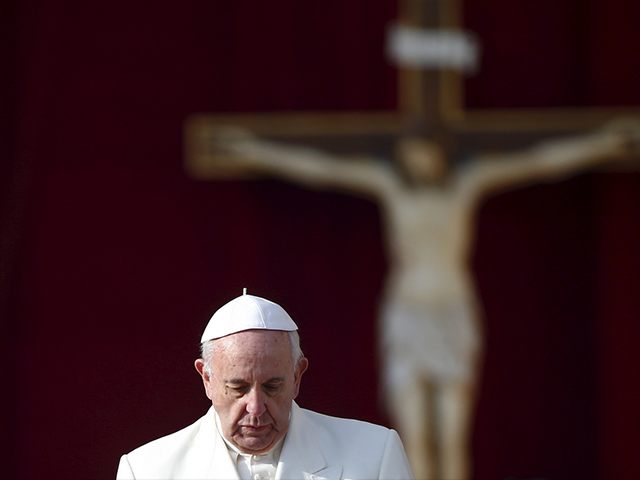Pope Francis has urged Slovenians to “uphold family values” as the country votes in a referendum on gay marriage. The vote could see Slovenia becoming the first Eastern European country to legalise gay marriage, in what is considered a strongly Catholic region.
Meeting Slovenian pilgrims during a general audience at St Peter’s Square earlier this week, Pope Francis didn’t explicitly bring up the referendum, but rather urged “everyone, especially those with public responsibility, to support the family, a structural reference point for the life of society,” Agence France-Presse has reported.
His comments come as Slovenia goes to the ballot box to decide whether or not to introduce gay marriage.
The measure was actually introduced into law last spring by the Slovenian Parliament, via an amendment to the Marriage and Relations Act which saw all marriage rights, including adoption, extended to gay couples. It is now going to a referendum vote as opponents of the law, led by a Catholic-backed group called Children Are at Stake, were able to collect the 40,000 votes required to force a referendum on the issue.
Metka Zevnik, co-chair of the campaign, has argued that allowing gay couples to jointly adopt violates children’s rights. The bill is part of a left-wing agenda “which does not recognise the utmost importance of motherhood and fatherhood in the child’s birth, development and education,” she said.
Polls opened last Tuesday, and the results will be announced on Sunday. To rescind the law, a majority of the voters must be in favour, and at least 20 per cent of the population must have voted.
Polls have suggested that the result might be quite tight: a poll conducted on November 30 for Delo found that support for the two camps was statistically neck and neck, with 42 per cent in favour and 41 against. An earlier poll, part of the 2015 Eurobarometer survey for the European Commission, found that 54 per cent of Slovenians supported the introduction of gay marriage across Europe.
But Central and Eastern Europe, which retains strong ties to Catholicism, are generally seen as more conservative than their western counterparts. Slovakia and Croatia recently introduced amendments to their constitutions enshrining marriage as between one man and one woman. They follow the example set by Hungary, Poland, Bulgaria, Latvia and Lithuania, who have previously made similar commitments to upholding traditional marriage.
Sociologist and commentator Roman Kuha has noted that Slovenia is generally more liberal than her neighbours, saying: “We established our first gay rights organisation in 1984, long before our neighbours, who only really saw movements like this after the system change in 1990.”
But he points out that previous votes on similar topics have upset poll predictions and returned a vote in favour of traditional values. He believes this is because older, more rural voters, who tend to be more conservative, generally turn out to vote in larger numbers.
According to Slovenian media, the referendum is widely considered to be a test of support for the ruling Modern Centre Party (SMC), led by Prime Minister Miro Cerar, which backs same-sex marriage. SMC has recently suffered a steep decline in support in opinion polls, dropping to just 7.6 per cent this week, Politico has reported.
President Borut Pahor is quietly backing the law, but taken a low-profile position ahead of the vote. Not so Slovenia’s representative in the European Commission, Violeta Bulc, who has joined the ‘Yes’ campaign.
“I am for an open and integrated society. A society that respects diversity … Vote Yes!” Bulc says in a campaign video.

COMMENTS
Please let us know if you're having issues with commenting.